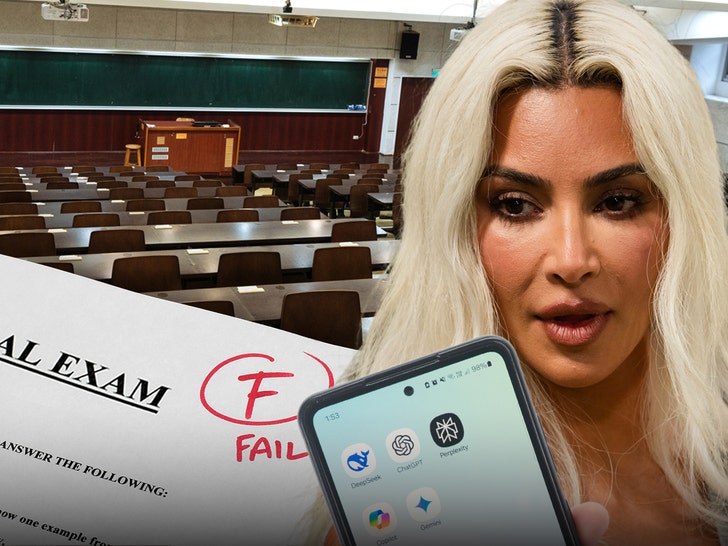
Hollywood meets higher education: When AI helps and hinders
Kim Kardashian, a reality star turned beauty mogul and aspiring lawyer, recently shared a surprising confession: she blames ChatGPT for making her fail a law exam. The 45-year-old revealed the details during a Vanity Fair lie detector interview, describing her interactions with the AI chatbot as a “toxic relationship.”
“I’ll take a picture, snap it and put it in there,” Kardashian said, explaining her habit of using ChatGPT to help with legal questions. “It has made me fail tests… all the time. Then I’ll get mad and yell at it.”
Her playful commentary, calling the AI her “frenemy,” reflects both humor and a very real dilemma about overreliance on artificial intelligence in education.
AI: Helper, Hindrance, or Hall Pass?
Kardashian’s struggle illustrates a broader societal trend. From students to professionals, many now lean on AI tools for research, writing, and problem-solving. According to a 2024 Stanford University study, over 68% of students admitted to using AI to complete assignments—but few verified its accuracy, risking misinformation.
Dr. Kate Darling of the MIT Media Lab explains:
“AI can amplify learning, but it can also erode the ability to question and engage with knowledge critically.”
In other words, depending too heavily on AI can create a false sense of competence, whether in Hollywood or the classroom.
The Risks of Relying on AI
Kardashian’s experience is not unique. A 2023 Nature study found that generative AI, while impressive in simulated tests, produces incorrect or misleading answers roughly 20% of the time, particularly in fields requiring precision like law or medicine.
Her humorous anecdote about ChatGPT highlights a universal truth: AI is not infallible. Even the most sophisticated algorithms can provide flawed guidance, and blindly following technology can lead to costly mistakes.
Social media has embraced Kim’s candidness, with fans jokingly sharing their own AI “failures” while also praising her honesty. One Twitter user wrote, “If Kim can fail the law exam because of ChatGPT, so can I. #FrenemyAI”, reflecting how relatable her story is to the everyday user navigating technology.
A Personal Journey in Law
For Kardashian, law isn’t just academic, it’s deeply personal. Her late father, Robert Kardashian, was a prominent attorney, and she has been pursuing a legal career since 2019. She famously failed the “baby bar” three times before finally passing in 2021.
“They need to do better,” she joked about AI. “Because I’m leaning on them to really help me and then they become my therapist after giving me the wrong answer.”
Her candidness is refreshing. It reminds the public that AI isn’t a shortcut to mastery, and even celebrities with access to the best resources can struggle with its limitations.
Kim Kardashian’s “frenemy” relationship with ChatGPT underscores a growing conversation about technology, dependence, and critical thinking. While AI offers enormous potential to assist learning, it also demands that users maintain discernment, cross-reference information, and critically engage with what they’re taught.
In the end, Kardashian’s story is part cautionary tale, part celebrity confession: AI can be a powerful assistant, but it cannot replace persistence, judgment, and human effort.
Source: IOL
Featured Image: X{@TMZ}




